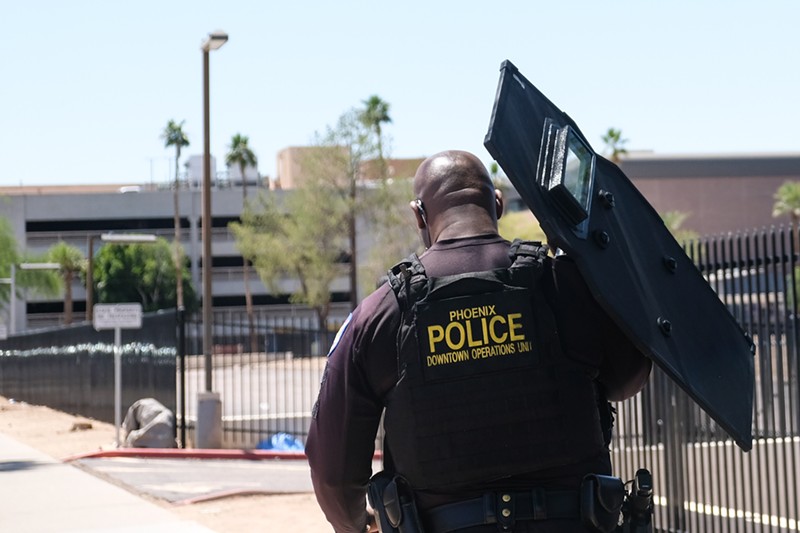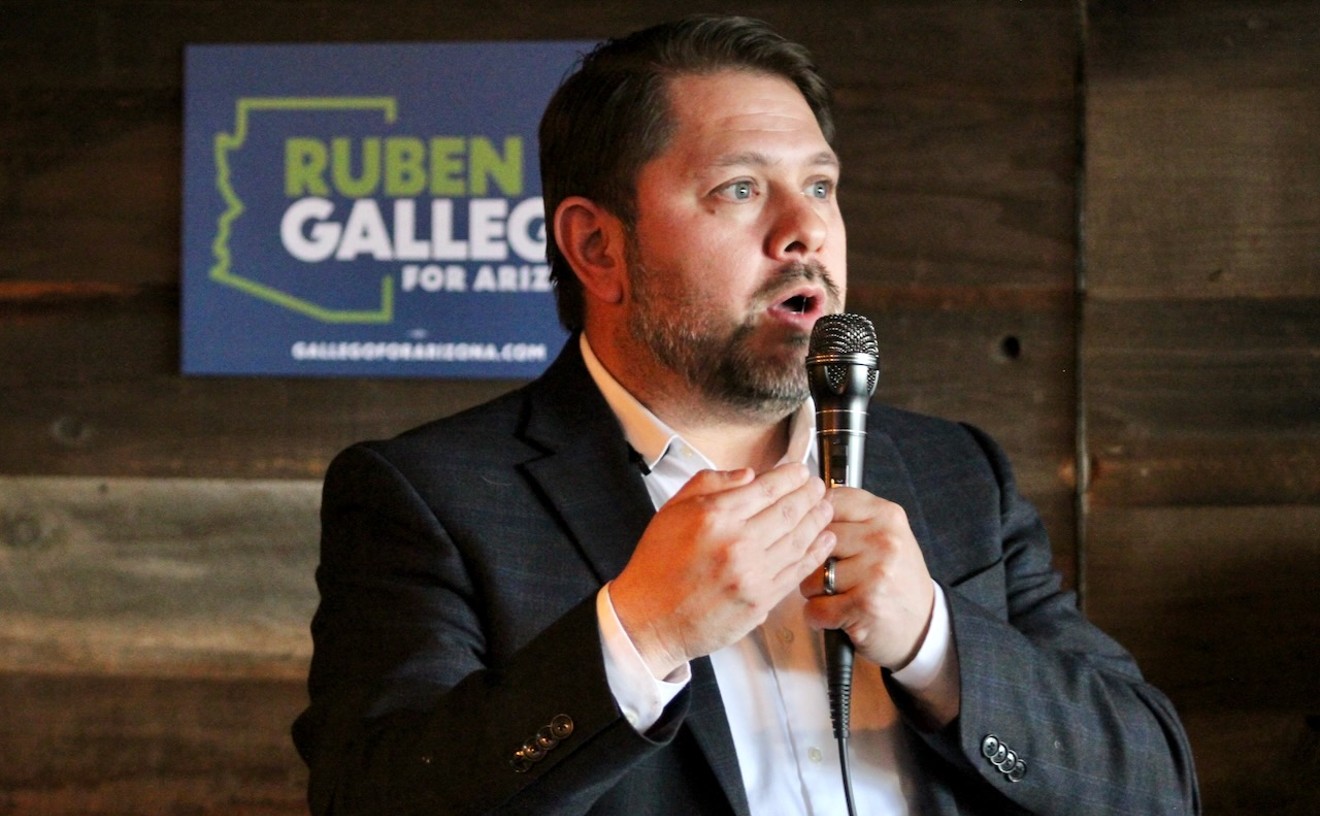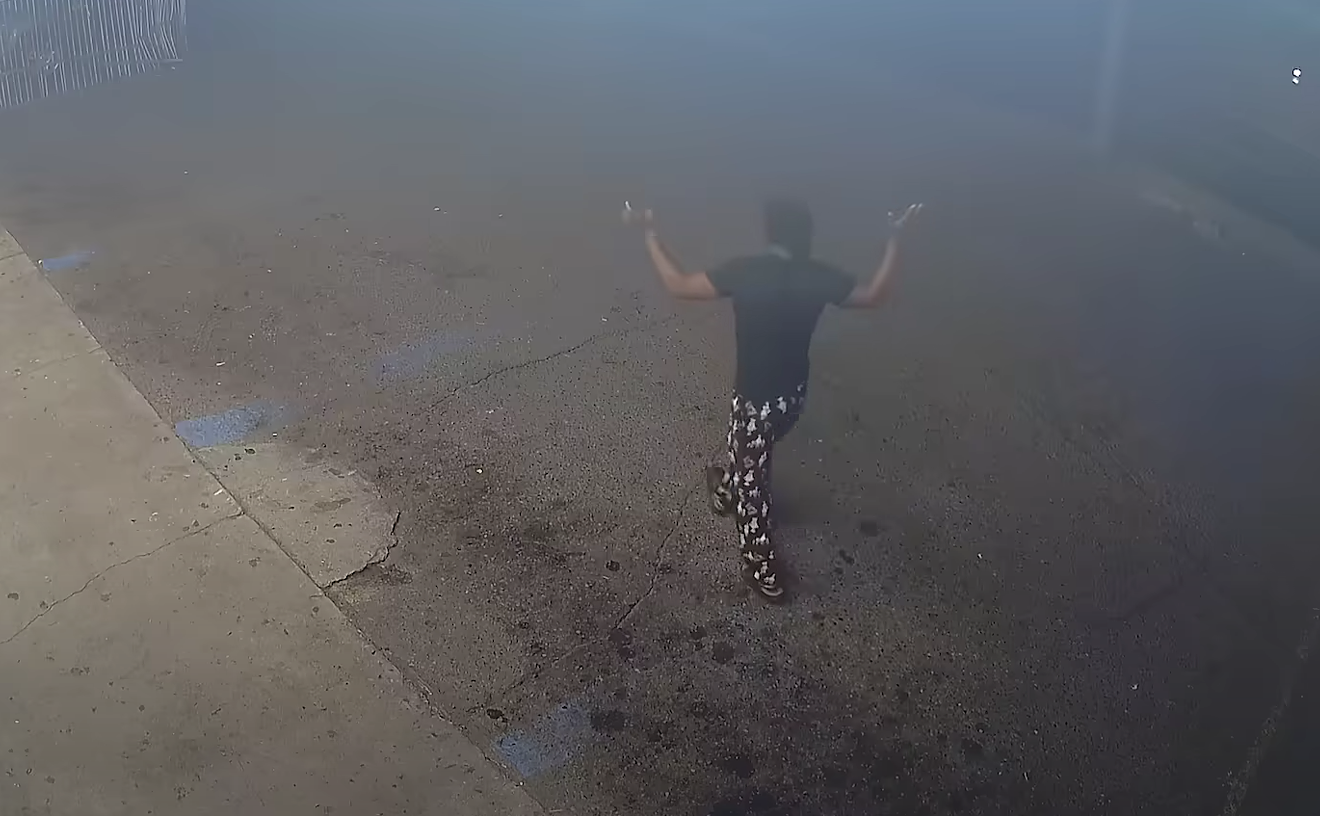DOJ officials conducted a Zoom call with community members Thursday evening to discuss its damning 126-page report on constitutional violations committed over several years by the Phoenix Police Department. Speaking in a panel-style format, DOJ attorneys held the call to provide updates about the case, take questions and allow participates to share their experiences with police.
Most notably, the DOJ used the call to reiterate its determination to obtain a consent decree, which is a court-enforced agreement between the city and DOJ that would subject Phoenix police to independent monitoring. A federal judge would ensure Phoenix abided by the agreement, which would mandate certain reforms.
According to officials on the call, the DOJ sent a consent decree draft to the city and police department following the release of its findings. The city has reviewed the DOJ’s proposed consent decree but hasn’t responded yet, the DOJ said Thursday. City officials, both before and after the report’s June release, have underscored that they feel a consent decree would be unwarranted and too expensive for taxpayers.
The DOJ is still hoping to meet with the city soon to discuss the agreement. But if one is not reached, the DOJ is not afraid to sue. Attorneys on Thursday’s call made that very clear — multiple times.
“If we can’t get there,” DOJ attorney Jean Zachariasiewicz said, “we do have the authority to file a lawsuit.”
“We have authority to sue,” fellow DOJ attorney Jorge Castillo added, “and we’ve used it.”
It may come to that. In a January letter, sent months before the DOJ shared its findings, Phoenix asked the DOJ to forgo a consent decree. Instead, it asked for the DOJ to issue a technical assistance letter, which wouldn’t come with the same level of oversight. Notably, Democratic congressman and current Senate candidate Ruben Gallego made the same suggestion in a letter publicized Tuesday, a day after the Arizona Police Association endorsed him.
“While I appreciate your efforts,” Gallego wrote, “I am deeply concerned that DOJ’s approach to PPD misses the mark, could impose overly burdensome costs, and ultimately have unintended consequences that will undermine the safety of our community.”
A technical assistance letter is a nonstarter for the DOJ, officials made clear Thursday. As for the projected cost to taxpayers, which Gallego estimated at $50 million, Zachariasiewicz said on the Zoom call that it’s important “to not put a price on constitutional policing.
“Because the violations we found here were so egregious, we really felt that a consent decree is necessary to have the enforcement mechanisms we need to make sure that the change that the community deserves happens,” Zachariasiewicz added. “We think (a consent decree is) ultimately the most effective and most cost-effective way to move forward than litigation.”

Phoenix City Manager Jeff Barton said the city will work with the Department of Justice to "identify a plan" to reform its police department "that works for Phoenix."
Matt Hennie
‘Pervasive’ violations
The violations indeed were egregious.The DOJ’s report found Phoenix police regularly committed five major systemic constitutional violations. The department consistently used excessive force, including unjustified deadly force. It also engaged in unlawful detention, citation and arrest of people experiencing homelessness, and it unlawfully disposed of the belongings of those people. The DOJ also found that Phoenix police discriminated against Black, Hispanic and Native American people as well as people with behavioral health disabilities. Officers also violated the free speech rights of citizens, including protesters.
And though Phoenix and its police department continue to assert that the agency can reform itself, the DOJ found that Phoenix police failed to accept and thoroughly investigate complaints of officer misconduct and did not adequately discipline officers who engage in misconduct. The department also had deficient training that the DOJ found contributed to its systemic constitutional violations.
That’s a lot to fix, and Phoenix has made a recent show of how committed it is to change. Less than two weeks ago, the city created an interactive webpage that linked public records, including bodycam footage and incident reports, related to events outlined in the DOJ report. Additionally, City Manager Jeff Barton released a statement on Tuesday pumping up the city’s efforts to reform its policing policies.
Barton said the police have “overhauled our Use of Force policy” and “implemented new, gold standard de-escalation training.” He added that city staff is working on a detailed project plan “to address the gaps, using industry-standard best practices” and said the city will cooperate with the DOJ to “identify a plan that works for Phoenix.”
Phoenix Mayor Kate Gallego also said in a statement that the city’s Sept. 24 city council meeting will “address concerns raised by the Department of Justice,” including considering “additional reforms to improve policing.”
DOJ officials seemed to appreciate the city’s efforts during Thursday’s call, but they were hardly placated by them. Deputy Chief Maureen Johnston said the examples of misconduct outlined in the DOJ’s report “are by no means the only evidence we found” of what she called the Phoenix police’s “severe” and “pervasive” violations.
The DOJ wants a consent decree, even if they have to drag the city to court to get one.













